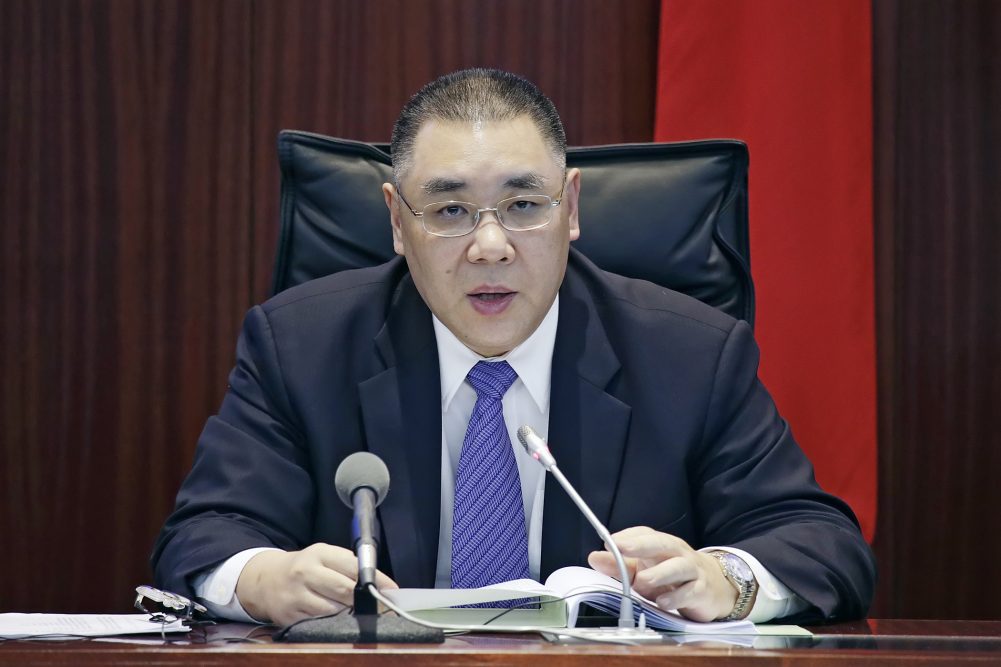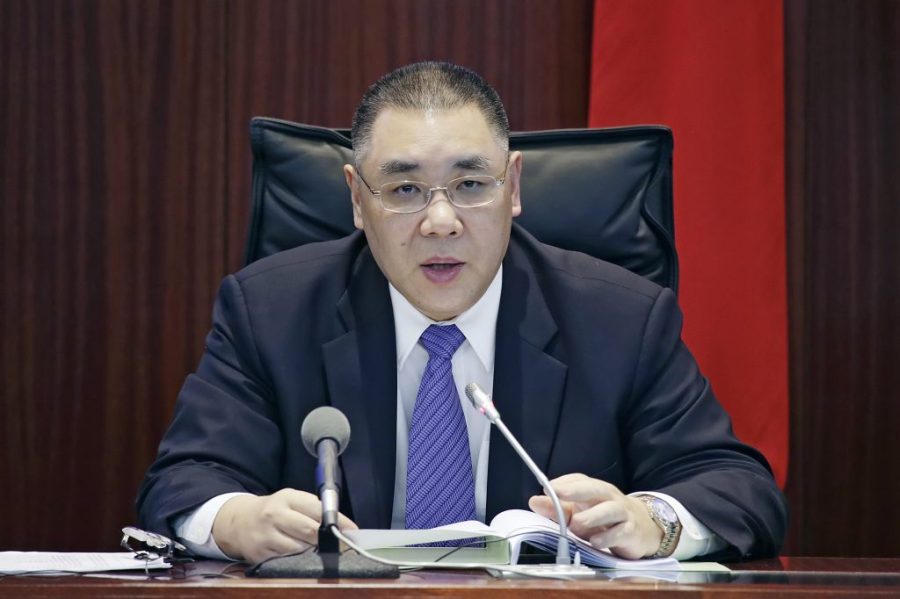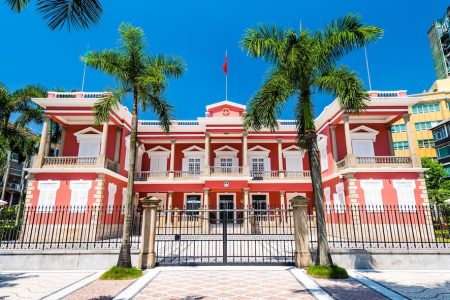Chief Executive Fernando Chui Sai On said in his 2018 Policy Address on Tuesday that the government will establish a long-term mechanism for disaster prevention and mitigation, in the wake of Super Typhoon Hato, the strongest typhoon to hit the city in over six decades, and roll out a raft of flood-prevention projects in the city’s low-lying areas.
Chui also said the government would continue its annual “wealth-sharing” handout scheme next year, by paying MOP9,000 to permanent and MOP5,400 to non-permanent residents. Both amounts remained unchanged from this year.
Chui presented his policy address during a one-hour plenary session of the Legislative Assembly (AL) Tuesday afternoon. Chui was accompanied by his principal officials, members of his top-advisory Executive Council and other senior officials when he presented his policy address in the legislature’s hemicycle.
Chui noted that Super Typhoon Hato in August has been the strongest typhoon to hit Macau since 1953, adding that the Hato disaster convinced the government to thoroughly reassess its existing measures to tackle catastrophic events. He said that the government was determined to improve its disaster response mechanism.
Super Typhoon Hato pummelled Macau on August 23, causing massive flooding, killing 10, injuring 244, and resulting in damage officially estimated at over MOP10 billion.
Chui said the government would establish a long-term mechanism for disaster prevention and mitigation. He laid out a raft of short-, medium- and long-term measures for disaster prevention and response.
In the short term, Chui said that the government planned to set up a new bureau responsible for civil protection and emergency response coordination.
In the public administration’s institutional hierarchy, a bureau is the top-ranked administrative unit under any of the government’s five policy secretariats.
Chui said the government planned to amend the existing by-law on the issuing of weather warning signals, with the aim of improving the typhoon forecasting process and the way the city’s weather station releases information to the public.
Chui pledged that the government will improve the drainage system and other flood-control projects in the Inner Harbour area.
Chui also said the government planned to build a new pumping station on the waterfront in the Inner Harbour area, adding that the government expected to invite bids for its construction during the first half of next year.
Chui also said the local government would strengthen its communication with the mainland authorities with the aim of getting the construction of a tidal gate project off the ground as soon as possible.
The government has said that the tidal gate project will be located between the west coast of the Macau peninsula and Wanzai in Zhuhai.
Chui also said that the government would commence the drafting of a ten-year plan for disaster prevention and mitigation (2019-2028) next year.
In the medium and long term, Chui said the government planned to construct a civil protection operations centre building on the peninsula, in addition to the existing one in Pac On in Taipa.
According to the Macau Post Daily, Chui also said the government would expedite the construction of the third link between the local power grid and China Southern Power Grid.
Chui also said that the government aimed to get the construction of a new electricity generation plant off the ground. According to previous news reports, local power utility CEM is planning to a build a natural gas-powered generation plant.
Chui also said the government would enhance Macau’s capacity to store water, adding that the government would also enhance planning for infrastructure construction, such as underground pipelines and windproof design for high-rise building.
The government will continue to pay a raft of subsidies and allowances to various segments of civil society, such as the elderly, low-income families and employees, the disabled, pupils and students.
The old-age pension will remain at MOP3,450 per month for next year, while the old-age allowance will increase from the current MOP8,000 to MOP9,000 per annum for next year.
Chui said the government expected its expenditure on subsidies to amount to MOP12.9 billion next year, including the “wealth-sharing” handouts.
Chui noted that the government’s current reserves amount to MOP505.2 billion – more than half a trillion patacas.
Meanwhile, Chui also said he was confident that the local economy will continue to grow next year.
After a 2.1 percent decrease in Macau’s gross domestic product (GDP) in real terms last year, the local economy grew at 10.9 percent in the first half of this year, according to official figures.
After addressing the legislature for about an hour with his policy address, Chui held a press conference at Government Headquarters.
In the press conference, Chui said the government expected the city’s gaming revenues next year to amount to MOP230 billion.
While the government last year expected the gaming revenues to be MOP200 billion for this year, Macau’s gross gaming revenues during the first 10 months of this year already reached MOP220 billion, a 19.2 year-on-year increase.
Macau’s gross gaming revenues stood at MOP223.2 billion last year, a 3.3 percent decrease compared with 2015, according to official statistics.






